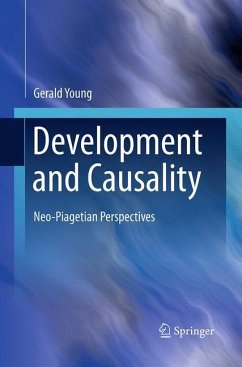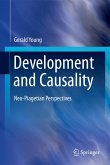This book sets forth a new model of development from a causal perspective. As this is an area vital to several disciplines. It has been written at multiple levels and for multiple audiences. It is based on the work of Piaget and Neo-Piagetians, but also covers other major models in development. It has elements that make it attractive as a teaching text, but it is especially research-focused. It has clinical applications. It presents many new ideas and models consistent with the existing literature, which is reviewed extensively. Students, researchers, and practitioners should find it useful. The models presented in the present work build on models introduced in prior publications (e.g., Young, 1990a, 1990b; 1997).
From the reviews: "Gerald Young, who, in his magnum opus Development and Causality: Neo-Piagetian Perspectives, has presented a detailed, five-stage theory of cognitive development, with five substages in each stage. ... Each chapter has an introduction that explains what will be covered. ... to those interested in the current state of neo-Piagetian theory and, more specifically, in the work of Gerald Young. ... Development and Causality: Neo-Piagetian Perspectives is still a remarkable book ... ." (Stephen A. Truhon, PsycCRITIQUES, Vol. 57 (15), April, 2012) "Dr. Young advances stage and development theories in an age of piecemeal traits and symptoms. Only our most brilliant minds have been able to observe, research and theorized about the complexities of development. I enjoyed reading something with depth for a change. Dr. Young's book does an excellent job of reviewing our best theories of life development, the scientific literature and then brings us to a new level of the understanding of human stages of growth with his advancements. I highly recommend this book to anyone who teaches personality theory, developmental psychology, or who plans on doing research in the area of human development. It is written clear enough for the very bright layperson to understand despite it's challenge." (Robert M. Gordon, Ph.D., January, 2012)









